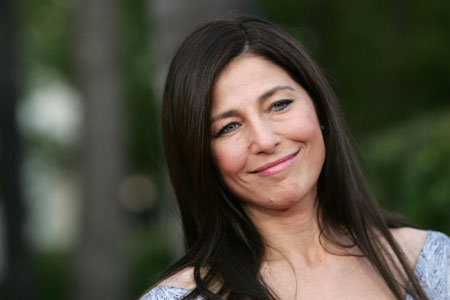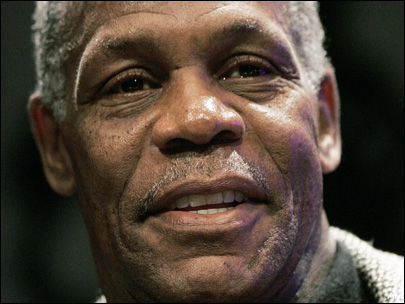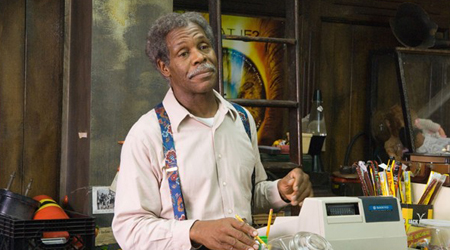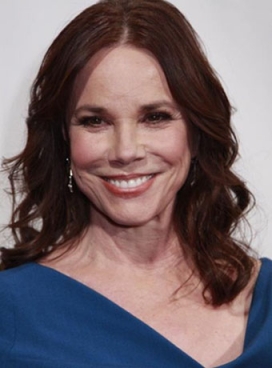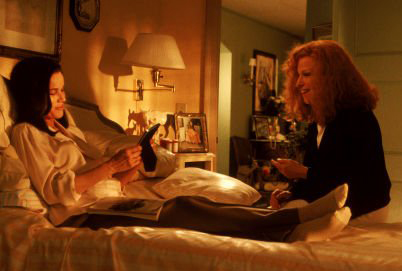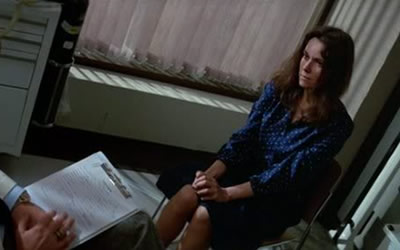 Craig from Dark Eye Socket here with this week's Take Three. Today: Eddie Marsan
Craig from Dark Eye Socket here with this week's Take Three. Today: Eddie Marsan
Take One: The Disappearance of Alice Creed (2010)
Marsan is elusive and perplexing as ex-con and current kidnapper Vic in J Blakeson’s British thriller The Disappearance of Alice Creed. It may be his best role to date. It’s certainly his most visible in terms of screen time and lasting impressions. Vic and Danny (Martin Compston) kidnap a girl called Alice (Gemma Arterton). We’re not initially certain why or what for, but surprising details emerge. It’s an intriguing, slow-burning three-hander, largely set in two rooms of one house, with a slippery plot that gets drip-fed to us with unsettling incremental unease. There’s a psychological and dramatic weight to Vic that Marsan smartly unearths. He utilises his familiar best attributes to expert effect, but twists them into something else. Vic spends much of the film in a desperate state. He gives orders to “assistant” Danny and threatens Alice. He’s in charge, but of what exactly is open to debate. But Marsan's expressive, layered acting style never lets caricature or over-indulgence creep in. Any more information will ruin the risk of ruining Alice Creed’s many wily turns; just know that both the film and Marsan are excellent.

Take Two: Heartless (2009)
In Philip Ridley’s spooky Brit flick Heartless things are often not what they seem. To rid his face of a heart-shaped birthmark, Jim Sturgess’ Jamie makes a pact with Papa B (the devil, by another name) to commit random acts of vandalism on his behalf. Not a great idea by any stretch, but he’s helped (or is it hindered?) in his pursuits by Marsan’s Weapon’s Man, a shifty, nameless visitor with a sly, blackly comic side. Heartless is an uneasy blend of grim humour and demonic horror but it's instantly more appealing during Marsan’s amusing one-scene appearance. Doing the devil’s legwork, he comes on like a dark salesman of the soul, using the over-practiced niceties and witticisms of a pushy middle man. Marsan's bite-sized performance is wickedly funny and unnerving, sending one or two shivers down the spine and a few along the funny bone. The last time an actor was this good in surrealistic character mode, with a snappy in-and-out turn, was Robert DeNiro in Brazil.
Take Three: Happy-Go-Lucky (2008)
It’s quite possible that Marsan has one of the best, or luckiest, or most deftly-managed careers in the movies. He's had some enviable bosses: J.J. Abrams (Mission: Impossible III), Alejandro González Iñárritu, (21 Grams), Terence Malick (The New World), Michael Mann, (Miami Vice), Richard Linklater (Me and Orson Welles), Guy Ritchie (Sherlock Holmes) and Martin Scorsese (Gangs of New York) among others. (War Horse, with Spielberg, and a Bryan Singer film are incoming). And this lot – Tom Cruise, Robert Downey Jr., Jude Law, Natalie Portman, Cameron Diaz, Leonardo DiCaprio, Daniel Day-Lewis, Colin Farrell, Sean Penn, Naomi Watts, Jamie Foxx, Will Smith and Charlize Theron – have all made for dependable work colleagues. But his best collaborator, with 2003’s Vera Drake and, especially, in 2008 with Happy-Go-Lucky, has been Mike Leigh.

To say that Scott, Poppy's (Sally Hawkins) temperamental driving instructor, had issues is like saying time is infinite. Marsan makes him feel like a pitiable, wrong-headed individual, sucked up into the throes of modern existence, instead of an easily discardable nutjob to be vilified. You could have parked a car in the gaping chasm of his social conscience, but he’s still very much part of the fabric that binds Poppy to her life of whimsical decency.
The neatly-trimmed goatee, ill-judged earring, generic dress sense and “En-Ra-Ha!” mantra are integral embellishments, and his misanthropic tendencies -- that defiantly ugly disdain for others -- are crucial characteristics. Marsan's control fully grounds this caustic character. I bet nobody passes their driving test the first time, if at all, with Scott.
Three more for the taking: Sherlock Holmes (2008), V for Vendetta (2006), Red Riding trilogy (2009)
 Sunday, May 29, 2011 at 3:00PM
Sunday, May 29, 2011 at 3:00PM 